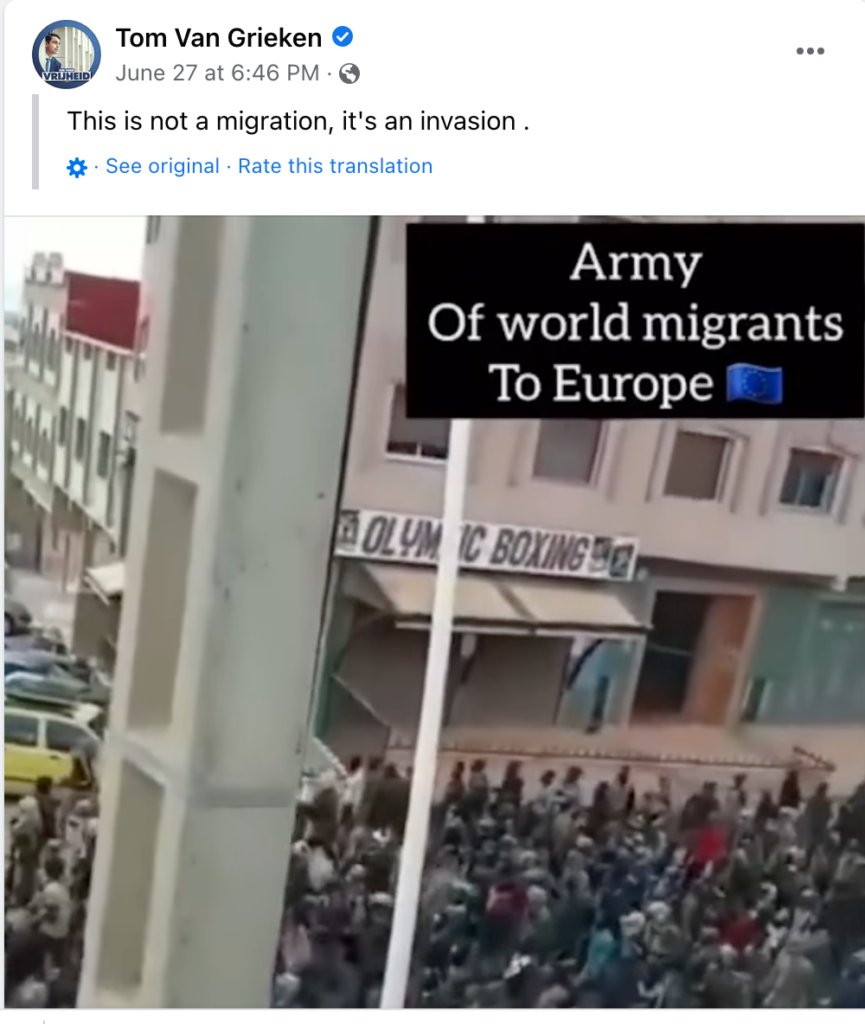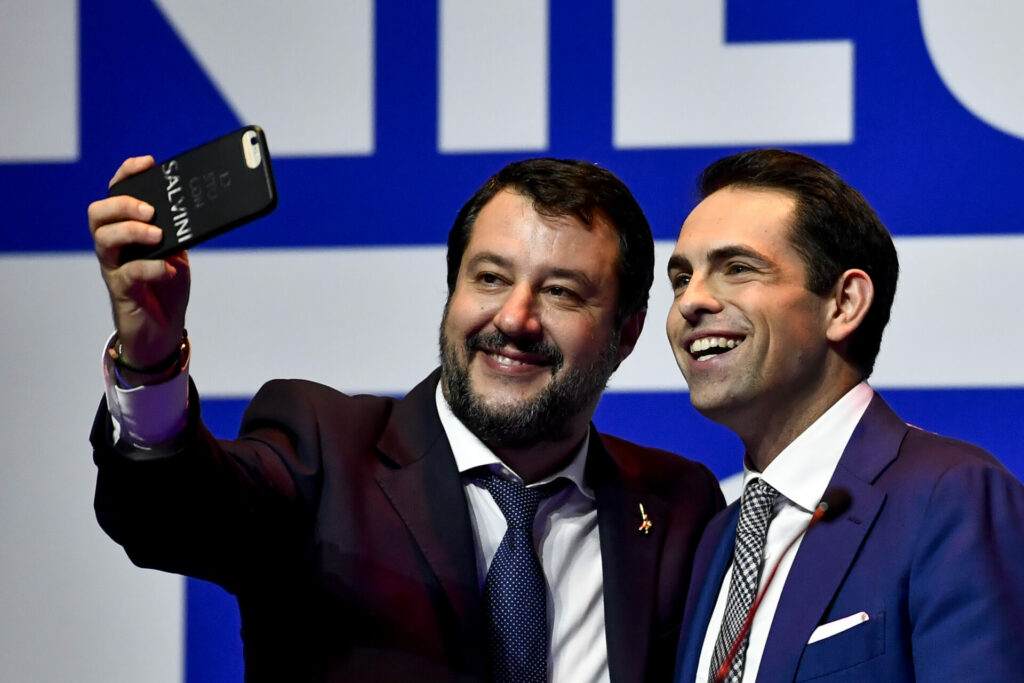No other Western European politician has spent more money on Facebook and Instagram advertising this year than Tom Van Grieken, leader of the far-right Vlaams Belang party.
Van Grieken has already spent €219,059 euros this year on advertisements on Instagram and Facebook, according to reports from Knack. This follows the news that the party itself was up until recently ranked number one when it came to European political parties and their spending on social media advertising.
Based on figures from AdLens, an organisation that researches political ads on Facebook, this puts him at the top of all Western politicians when it comes to spending on political ads. Other top-spending European politicians include Hungarian right-wing Prime Minister Viktor Orbàn.
While Belgium is the country where parties have the highest political spending on Facebook ads, there is a wider trend which links the rise of the European far-right with the increased use of social media as a news outlet.
Spreading hatred and disinformation
With social media and the far-right rising side by side across the world, it is no surprise to learn that once again far-right profiles are spending the most on Facebook ads to push their extremist anti-democratic propaganda.
Van Grieken, meanwhile, argued that he is forced to advertise so heavily via social media because regular media outlets refuse to publish his ads or report on his policies.
Far-right politicians and parties have turned to Facebook and online campaigning to overcome the obstacle of traditional political and media blackouts – in norms established after the horrors that fascism brought to Europe and the world in the 20th century.
Across Europe, many have been able to burst the traditional party bubble and forced their way into the political mainstream by peddling disinformation on a variety of issues, namely migration, LGBTQ rights or climate change, and use their online platforms to maximise their support through a strategy of fear of "the other."
Making use of Facebook's infamous algorithm that promotes content that garners the most clicks and reactions, far-right parties intentionally seek to whip up fear and hatred to increase their visibility and support. Accounts like Tom Van Grieken’s have for years posted fake news and decontextualised videos as a form of public scaremongering.

Credit: Facebook
This frequently involves posting videos of non-white people (often in psychological distress), either committing a crime or fighting in public in Europe.
These will often be accompanied by a racist dog whistle comment intended on whipping up viewers into reactionary hatred. It is a trick that has been popularised by Matteo Salvini, Viktor Orbán, Geert Wilders, and Nigel Farage, and makes the most of the deregulated political battlefield of social media, which has become a key source of campaigning since the 2010s.
Related News
- Belgian political parties remain high in EU ranking of most spent on ads
- Belgian political parties spent €4.9 million on Facebook ads in 2020
The videos rarely give any context and often are not actually depicting what they claim to. Yet their power to sway electors has been proven in political opinion polls, with the far-right making particular gains in Flanders and Italy, while also flying high in France, the Netherlands and Spain.
Vulnerable democracies
Not regulating Facebook ad spending puts Western Europe at great risk. It is no surprise that by selling political ads to the highest bidder, with no checks on where the money being poured into online campaigning comes from, democracies are left vulnerable to foreign intervention, as the Cambridge Analytica/Facebook scandal showed.
The risk of democracies being compromised by these tactics continues to rise, especially without proper regulation of the online political space. Both in Belgium and the EU, calls have been made to limit the spending on political ads by parties outside before election periods. There is also a need for greater transparency regarding the labelling of political advertising but this has yet to be written into law.

